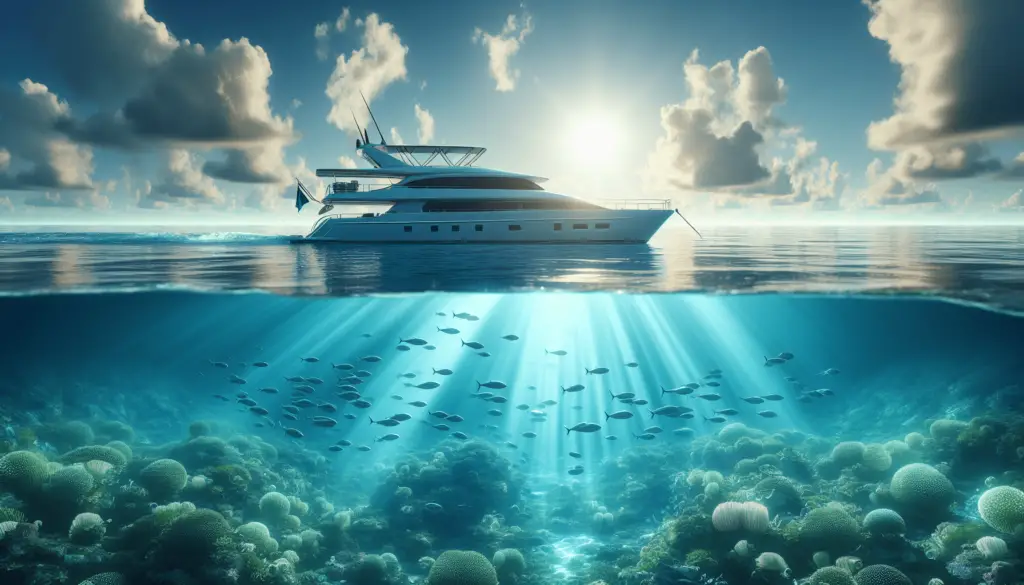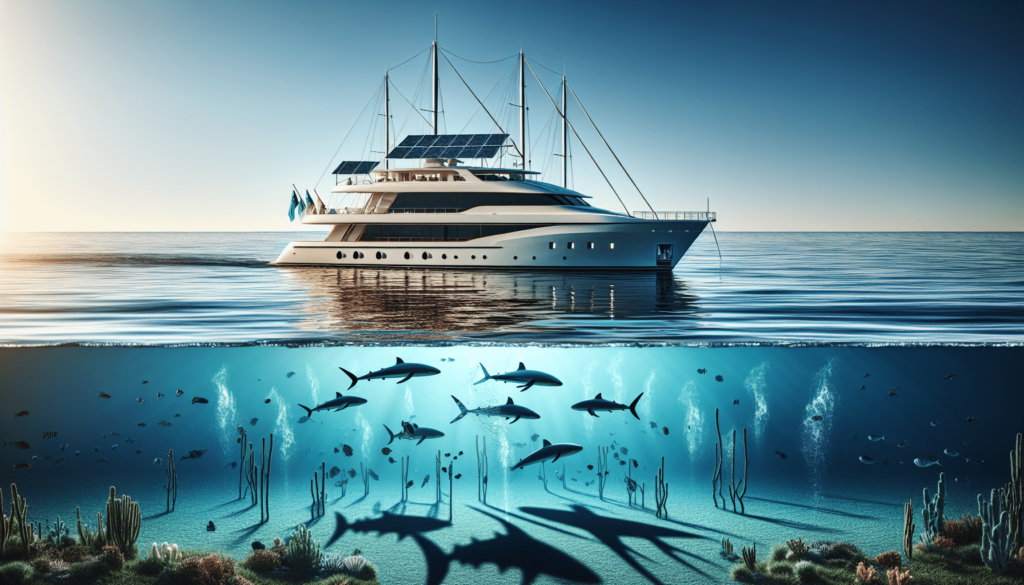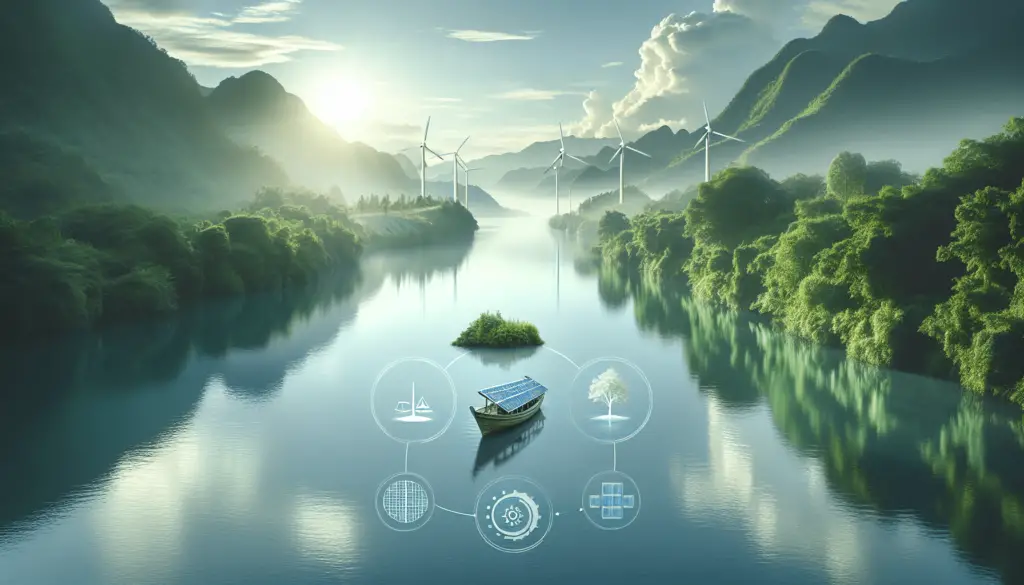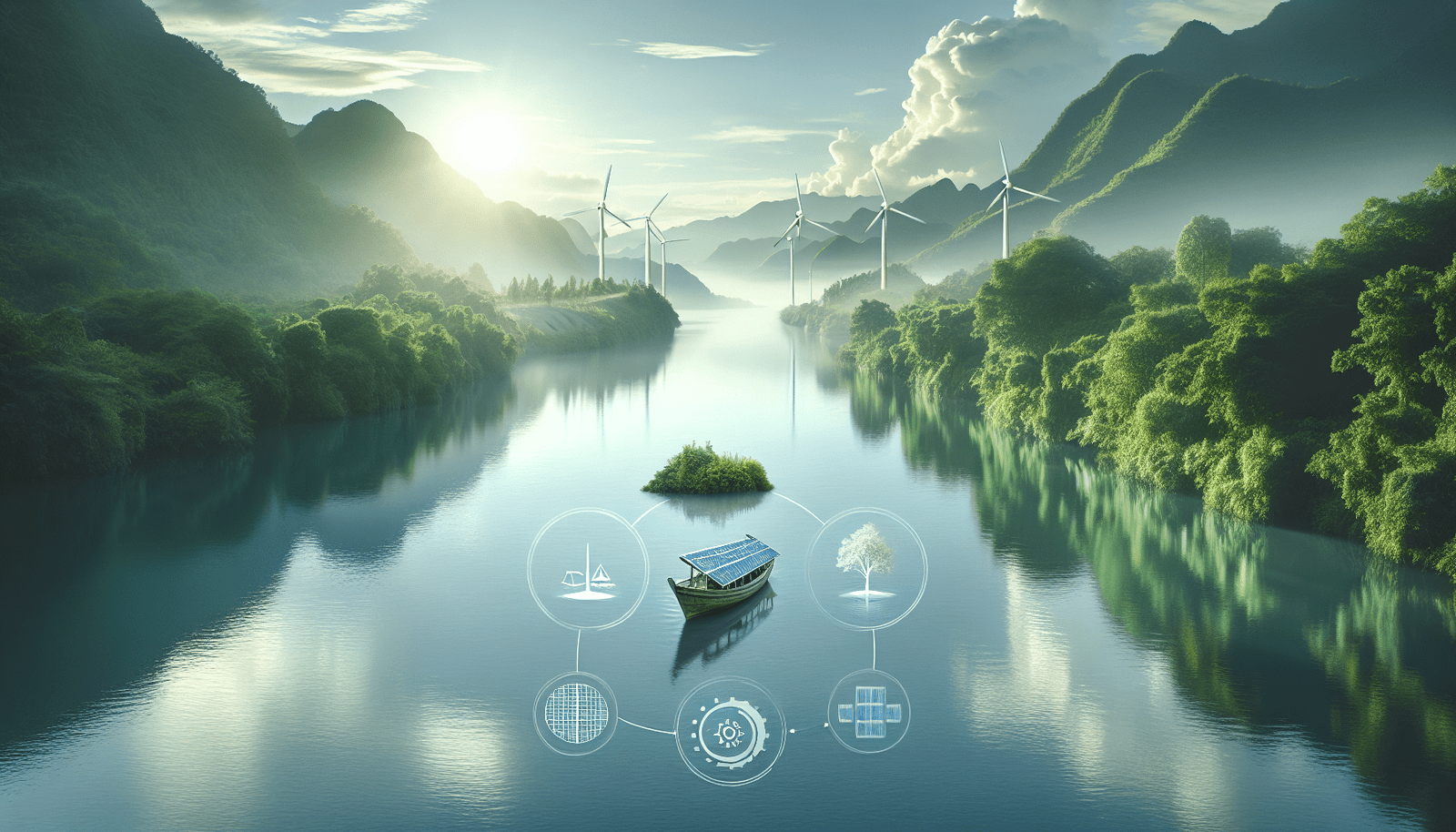Imagine yourself out on the open water, light breeze caressing your face, the comforting rhythm of lapping waves against your boat – a feeling of peace engulfs you. Now, envisage transforming that experience into something that doesn’t just revitalize your spirit, but also preserves the environment. This can be your reality with “Eco-Friendly Boating Advocacy and Activism.” This article will explore the growing movement that’s fueling a positive change in the boating industry, proving that your love for boating can coexist harmoniously with your desire to protect Mother Nature. Its all about merging passion, responsibility, and most importantly, action. Ready to set sail on this enlightening journey?

The Importance of Eco-Friendly Boating
It’s impossible to ignore the growing conversation about environmental conservation, and one topic that warrants more attention is eco-friendly boating. Understanding the importance of this issue requires a broader awareness of the state of our oceans and how individual activities such as boating contribute to its current condition.
The state of our oceans
Your love for boating probably stems from a deeper adoration of the open waters. But have you ever stopped to consider the state of our oceans? They’re suffering, and a big part of that is due to human activities. Pollution, marine life disruption, and the depletion of marine populations are but a few signs of our oceans’ distressed state.
How boating affects the environment
How, you may wonder, does boating affect the environment? Traditional boating practices can directly harm the marine ecosystem. Boat leaks and spills, inappropriate waste disposal, and even the noise and wave disturbance from these vessels can greatly affect aquatic life. Propellers can damage sea beds, while emissions from engines contribute to air and water pollution.
Why we need to advocate for eco-friendly boating
Understanding the impact boating has on the environment, it’s clear why eco-friendly boating must be a priority. Knowing you’re part of the solution and not the problem, can enhance your enjoyment of the oceans and waterways. And, it can also contribute to the sustainability of these aquatic resources for future generations.
Understanding Eco-Friendly Boating
Now that we understand the necessity, let’s dive deeper into what eco-friendly boating means and how it exemplifies in actual practices.
Defining eco-friendly boating
Eco-friendly boating champions the preservation of the marine environment by reducing the negative impact boating has on aquatic ecosystems. It advocates for green practices such as the use of environmentally friendly equipment, fuels, maintenance procedures and waste management.
Examples of eco-friendly boating practices
Some practical examples of eco-friendly boating include using non-toxic, biodegradable cleaning products, maintaining a careful watch to avoid seagrass and reef areas, implementing careful waste disposal policies, and opting for solar or electric alternative boat propulsion methods.
The benefits of eco-friendly boating to the environment and to boaters
Eco-friendly boating benefits the environment by minimizing pollution, noise, and physical disturbance to marine habitats. For boaters, apart from the satisfaction of preserving the very spaces they enjoy, these practices often result in cost savings from efficient maintenance and operation, and can even enhance boat resilience over time.

Challenges in Promoting Eco-Friendly Boating
Despite these clear benefits, promoting eco-friendly boating is not without its challenges. Awareness, cost, and resistance from the boating community remain key barriers.
Resistance from the traditional boating community
Some members of the traditional boating community may resist the shift to eco-friendly boating due to habit, skepticism, or inconvenience. They may see it as an unnecessary change or fail to see the long-term benefits of these practices.
Lack of awareness and understanding
Many people simply are not aware of eco-friendly boating or understand how their boating practices impact the environment. The lack of mainstream exposure and education on this topic also contributes to this knowledge gap.
The higher initial cost of eco-friendly boating
The initial financial investment can deter potential eco-friendly boaters. Eco-friendly equipment and renewable energy sources may come with higher upfront costs, even though they often result in long-term savings.
Advocacy for Eco-Friendly Boating
Stakeholders must advocate for eco-friendly boating using various strategies to overcome these challenges and move towards environmentally sustainable boating.
The role of individuals in promoting eco-friendly boating
As an individual, you can take up personal eco-friendly boating practices and share your experiences with others. Joining or starting an eco-boating club is another excellent initiative. Every change, no matter how small, moves us a step closer to our goal.
How organizations and clubs can advocate for eco-friendly boating
Organizations and clubs should educate their members on eco-friendly boating practices, promoting responsible behaviour. They can also host events and clean-up drives to improve marine health and raise public awareness.
The use of social media and other platforms for advocacy
Social media platforms can help promote eco-friendly boating by spreading the word and showing the results of positive actions. These platforms offer a powerful means of creating a viral impact for environmental causes.

Action: Implementing Eco-Friendly Practices in Boating
Next, let’s talk about what concrete actions you can take to make your boating practices more eco-friendly and proactive.
Practical steps to make your boating eco-friendly
Start by learning about environmentally responsible boating practices and implementing them. Purchase eco-friendly equipment when possible, and be conscious about limiting waste and reducing disturbance to marine life.
Re-thinking boating equipment and maintenance for the eco-friendly
Consider switching to renewable energy sources, such as solar or wind power, and maintain your boat using non-toxic cleaning supplies. Be mindful of reducing fuel use and emissions wherever possible.
Sharing the eco-friendly boating message with others
Encourage others to adopt eco-friendly boating habits by sharing your experiences and the benefits you’ve seen. Invite them to join the movement towards better boating practices.
Policy and Legislation for Eco-Friendly Boating
While individual actions are crucial, it’s equally important to have government support for eco-friendly boating through appropriate policy and legislation.
Existing laws and regulations
Currently, there are some laws and regulations in place for protecting marine ecosystems, such as clean water and pollution prevention. But more can be done specifically regarding boating activities.
Proposed legislation to promote eco-friendly boating
Policy-makers could consider implementing new legislation that promotes eco-friendly boating practices. This could involve providing incentives for adopting green tech or imposing stricter penalties for environmentally harmful practices.
The role of the government in promoting eco-friendly boating
In addition to passing helpful legislation, government bodies can promote eco-friendly boating practices by providing education, creating awareness campaigns, and offering funding for green initiatives.

Activism in Eco-Friendly Boating
A significant part of advocacy is activism, which can raise awareness, influence policy, and bring about change.
Protests and campaigns for eco-friendly boating
Protesting and campaigning can be powerful tools for raising awareness on the importance of eco-friendly boating. These activities can help to put pressure on governmental bodies and industry stakeholders to take action.
Involvement in legislative processes
Activists can also get involved in legislative processes. This might involve lobbying for eco-friendly boating legislation, submitting proposals, or participating in public hearings.
Collaborating with environmental organizations and authorities
Collaborating with environmental organizations can help to bolster efforts in eco-friendly boating advocacy. These collaborations can bring about powerful change through shared knowledge, resources, and influence.
Eco-Friendly Boating Education and Training
Education and training play a vital role in promoting eco-friendly boating.
Importance of education in promoting eco-friendly boating
By teaching others about the impact of boating on the environment and the benefits of eco-friendly practices, we expand the network of informed boaters. Education helps to bridge the knowledge gap, combat resistance, and inspire action.
Available training programs for eco-friendly boating
Search for training programs or workshops near you that focus on eco-friendly boating or consider taking an online course. These programs typically teach you how to operate and maintain your vessel in a manner that minimizes environmental harm.
The role of schools and colleges in eco-friendly boating education
Schools and colleges that offer marine or environmental studies should incorporate eco-friendly boating into their curriculum. By targeting education at a young age, we can inspire the next generation of responsible boaters.

Technological Innovations in Eco-Friendly Boating
Incorporating technology into our boating practices can go a long way in preserving our oceans.
Latest technological advancements for eco-friendly boating
New innovations are making it easier to adopt eco-friendly boating practices. These include solar and wind-powered propulsion systems, electric engines, and biodegradable products. Other advancements, such as marine-grade solar panels, are becoming increasingly accessible – making it easier to switch to renewable energy on the water.
Future trends and technologies in eco-friendly boating
Future trends show a move towards more efficient hull designs to reduce fuel consumption, advanced battery technologies for electric boating, and smart tech for waste management.
How technology can help in promoting eco-friendly boating
Technology can play a vital role in promoting eco-friendly boating by making it more convenient and cost-effective. It also opens up new possibilities for sustainable boating practices.
The Future of Eco-Friendly Boating
As awareness grows and technology advances, the future for eco-friendly boating looks bright.
Predicted trends in eco-friendly boating
We’re likely to see a rise in electric boats, an increase in the use of renewable energy sources on boats, and more technologies aimed at environmental conservation. A general push towards more environmentally conscious boating behaviour is expected as the importance of preserving our oceans becomes increasingly recognized.
Long term effects of eco-friendly boating on our oceans
Long term, eco-friendly boating can help to reduce pollution, protect marine ecosystems, and ensure that our oceans remain a source of joy and relaxation for many generations to come. It can also promote sustainable fishing practices, contributing to the health of marine species.
How the boating industry is changing in response to eco-friendly needs
The boating industry is slowly changing in response to these needs. Boat manufacturers are exploring and implementing green technologies. Marinas are adopting eco-friendly operations, and legislation is changing globally to enforce eco-friendly boating practices. Your job is to join this movement and bring the change.

